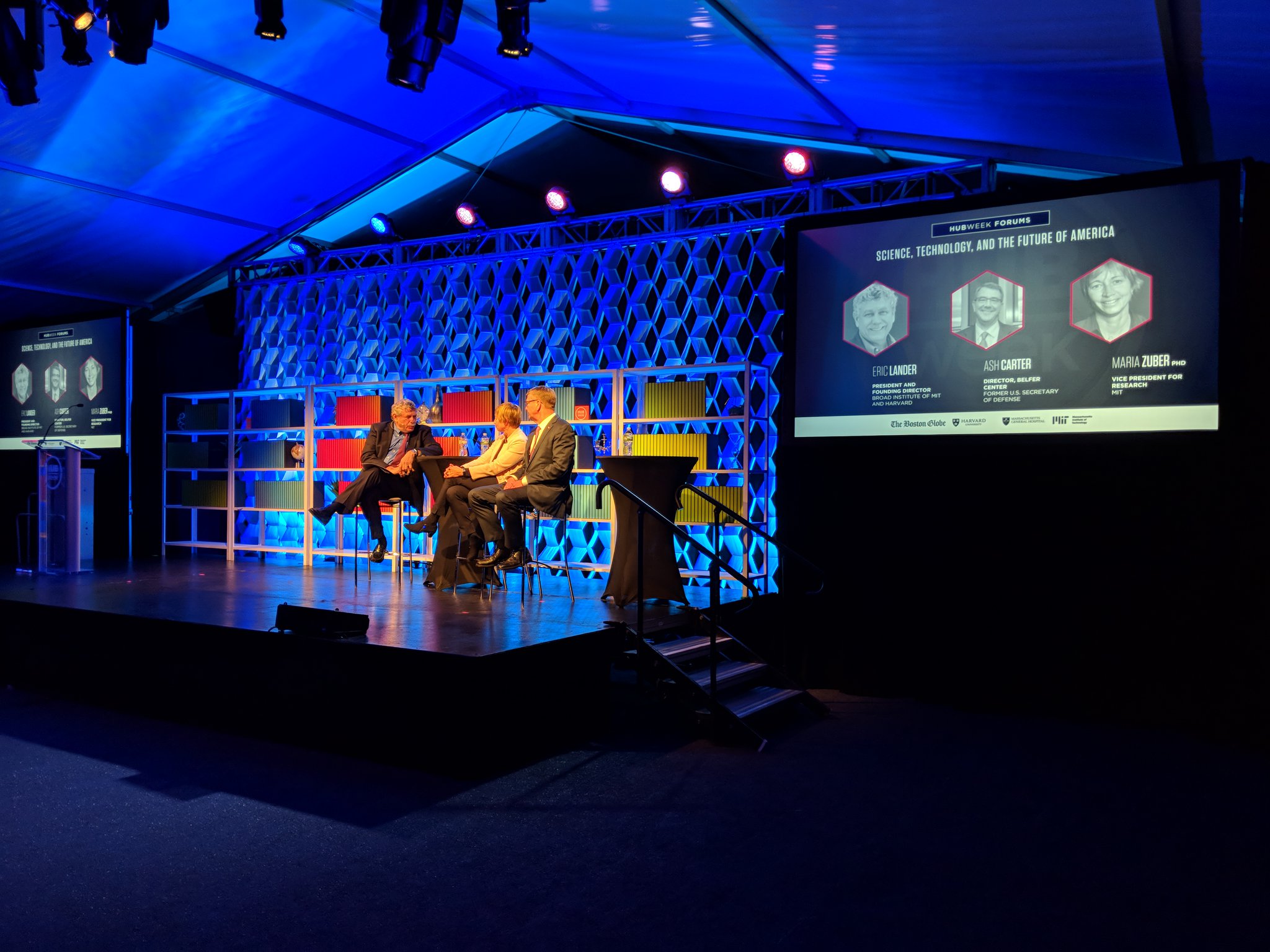A common theme this week has been how technology can be harnessed to improve our lives and communities for the better.
This question was examined further by Ash Cater, director of the Belfer Center and former U.S. Secretary of Defense, and Dr. Maria Zuber, vice president of research at MIT, in a panel discussion, “Science, Technology and the Future of America,” moderated by Eric Lander, president and founding director of the Broad institute of MIT and Harvard.
Eric asked the panelists what excites them most about technology, and both agreed that it’s the potential for today’s youth and future generations to use new innovations to shape a better future. Ash said that young people today have grown up with a sense of service, and have a strong desire to leave the world a better place than what they came into. Both he and Maria said they see this desire in Boston particularly, as the student community wants to “bend the arch of technical change in the direction of human good.”
Technology’s potential to improve and simplify our lives was also examined in a talk with Colin Angle, CEO and co-founder of iRobot and Michele Turner, senior director, product, smart home ecosystem at Google. They emphasized that we’re a long way from a truly connected home because robots lack location awareness and context, and discussed how iRobot, Google and other industry players are working to address this need. As Michele put it, our most precious commodity is time and companies that can equip smart devices with the location awareness and context to alleviate time constraints stand to benefit the most from the technology’s potential.
